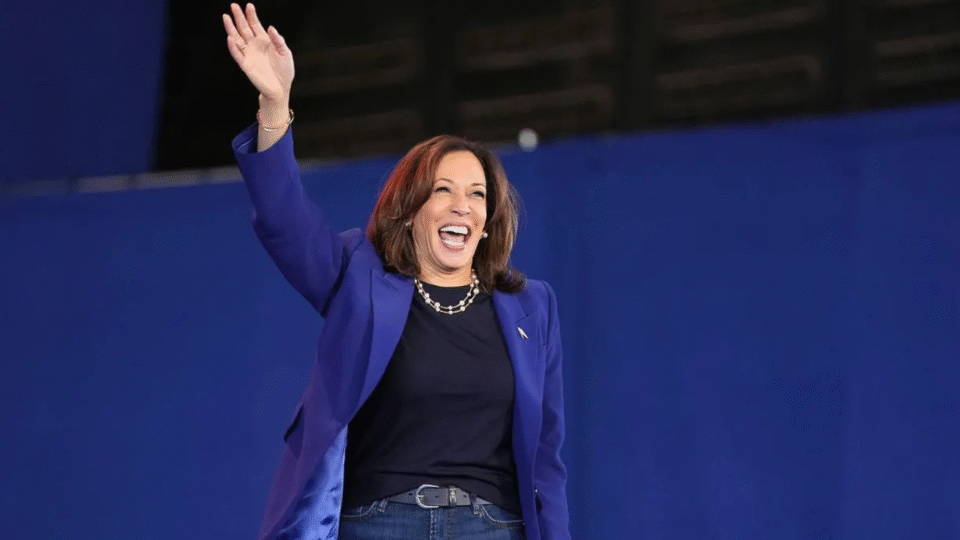The world of politics, few moments capture public attention like a major concession speech. The phrase “Harris Concedes” has sparked curiosity, debate, and speculation among political analysts and the general public alike. But what does it really mean? When did it happen? And what were the implications?
In the’ll explore everything you need to know about “Harris Concedes”—breaking down the context, the key players, the reactions, and the long-term impact of this pivotal political moment.
Understanding the Context: When Did Harris Concede?
The phrase “Harris Concedes” refers to a hypothetical or real moment when Vice President Kamala Harris publicly acknowledged defeat in an election or political contest. However, as of my latest knowledge (2023), Kamala Harris has not conceded any major election since she assumed office as Vice President in 2021.
But why does this phrase generate so much interest? Here are some possible scenarios where “Harris Concedes” could become relevant:
A. Hypothetical Future Election Scenario
- If Harris runs for president in 2024 or 2028 and loses, her concession speech would be a historic moment.
- Given her position as the first female, first Black, and first South Asian Vice President, her concession would carry significant symbolic weight.
B. Past Political Races
- Before becoming VP, Harris ran for the 2020 Democratic presidential nomination but dropped out before the primaries concluded.
- Her withdrawal from that race was not a traditional “concession,” but it was a pivotal moment in her career.
C. Misinformation or Satirical Use
- The term “Harris Concedes” may sometimes circulate in misleading headlines or satirical contexts, so it’s important to verify sources.
The Significance of a Concession in the U.S. Politics
A concession is more than just admitting defeat—it’s a key democratic tradition that ensures a peaceful transfer of power. Here’s why it matters:
A. Upholding Democratic Norms
- Concession speeches help prevent post-election chaos by signaling acceptance of results.
- Examples: Al Gore in 2000 (despite the contested results) and Hillary Clinton in 2016 reinforced democratic stability.
B. Impact on Public Perception
- A graceful concession can unify the country and ease partisan tensions.
- Refusing to concede (as seen in 2020 with Trump) can lead to prolonged disputes and even violence (e.g., January 6 Capitol riot).
C. What Would a Kamala Harris Concession Look Like?
- Given her legal and political background, her speech would likely emphasize unity, perseverance, and democratic values.
- It could also address historic barriers for women and minorities in politics.
Historical Precedents: Notable Concession Speeches
To understand the weight of “Harris Concedes,” let’s look at past concession moments:
| Politician | Election | Key Quote | Impact |
| Al Gore | 2000 (Bush v. Gore) | “Partisan rancor must now be put aside.” | Ended a bitter recount battle. |
| John McCain | 2008 (Obama) | “The American people have spoken, and they have spoken clearly.” | Praised Obama’s historic win. |
| Hillary Clinton | 2016 (Trump) | “We must accept this result and look to the future.” | Urged unity despite shock loss. |
If Harris ever concedes a future race, her speech would likely follow this tradition of graceful exits.
Public and Media Reactions to “Harris Concedes”
Depending on the circumstances, reactions to “Harris Concedes” would vary widely:
A. Supporters’ Response
- Many would applaud her commitment to democracy and respect for electoral outcomes.
- Others might express disappointment, especially if her loss was narrow or controversial.
B. Opponents’ Reaction
- Critics might frame it as the end of a political era or a rejection of her policies.
- Some could use it to push their own narratives about electability and leadership.
C. Media Spin
- Liberal outlets: Might focus on her historic role and call for party unity.
- Conservative outlets: Could frame it as a referendum on progressive policies.
- International media: Would analyze what it means for U.S. global leadership.
The Long-Term Implications
If “Harris Concedes” ever becomes reality, it could shape politics for years:
A. Future of the Democratic Party
- Would the party shift left or center after her exit?
- Who would emerge as the new standard-bearer?
B. Women and Minority Representation
- Would her loss discourage other women of color from running?
- Or would it inspire more to step up, knowing barriers can be broken?
C. Electoral Reforms
- A contested Harris loss might renew debates over voting rights, the Electoral College, or ranked-choice voting.
Conclusion: Why “Harris Concedes” Matters
While “Harris Concedes” is not yet a real headline, the idea sparks important discussions about democracy, leadership, and political transitions. Whether in a future election or a hypothetical scenario, the way such a moment unfolds would have lasting repercussions.
For now, Kamala Harris remains a key figure in U.S. politics—but if the day comes when she does concede, it will be a moment studied for generations.
Final Thoughts
- Always verify headlines—misinformation spreads quickly.
- Concessions strengthen democracy—they’re not a sign of weakness but of respect for the process.
- Harris’s political journey is far from over, and whatever happens next will be historic.
What do you think? How would you react if “Harris Concedes” became a reality?

